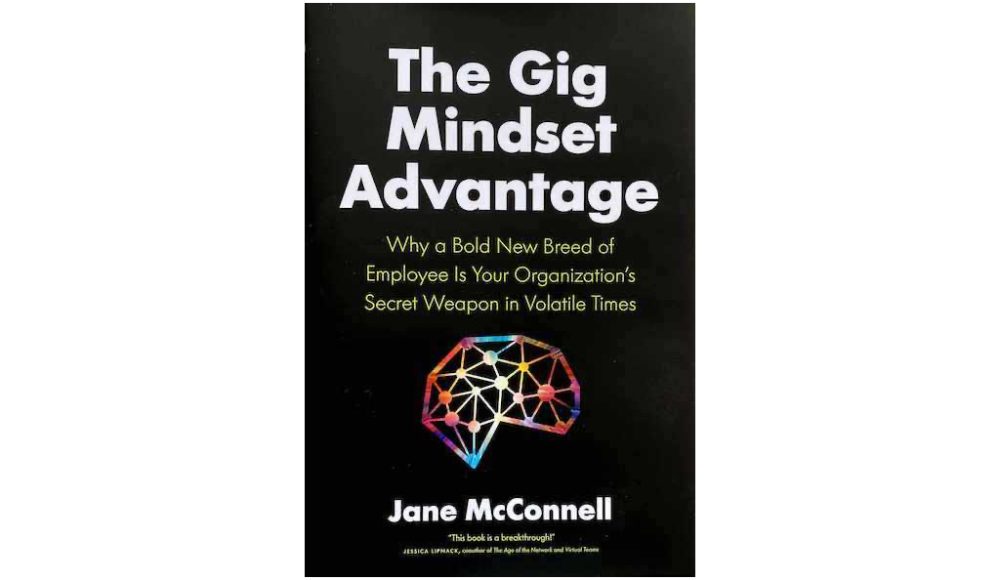Stories from the Future


Chapter descriptions
What people are saying
Reader profiles and what to expect from the book
Stories from the future, case studies in the book
About the research
Gig mindset traits explored in the research
Checklists: questions to consider (pragmatic and strategic)
The companies described in the six case studies in the book are living in the future in different ways. They are examples of values and practices that are an exception today, but that will be common in the future, as expressed by a senior manager I quoted at the beginning:
“Today the gig mindset is the exception, not the rule. But it’s like [they’re] early adopters who may well become the rule in the future.
Each organization presented here has found an approach that makes sense for them. Each has found ways to leverage the gig mindset advantage in their work cultures. What follows is a quick look at the cases, all of which are developed in detail in the book.
Merck KGaA, Darmstadt, Germany, a leading science and technology company, operating across healthcare, life science and performance materials, has 57,000 people in 66 countries.
They have developed a future-oriented Competency Model as a framework to guide processes and decision-making across the organization. This five-year old model is highly structured yet simple, a framework that encourages, validates and rewards many gig mindset behaviors and offers a foundation for a stimulating work culture.
Seeing far ahead: A future-oriented Competency Model, five years old and still growing. In a global company present in 66 countries, a model has to be adaptable. It can be tailored to what you need it to be, without compromising what is meant to be.
Air Liquide is an international company with a presence in 80 countries. Founded in 1902, it has a long tradition of innovation. With 67,000 employees worldwide, it specializes in gases, technologies and services for industry and the health sector.
Air Liquide developed a self-learning program and a virtual campus. They were proactive in making learning opportunities available to people.
Self-learning and a virtual campus: an initiative that was ready to go when needed. Gig-mindset people feel responsible, as individuals, for their own learning by increasing their knowledge and acquiring new skills. Organizations that are proactive in making learning opportunities available to people and giving them control over what they learn and how, are likely to keep gig-mindset people motivated to do their best work for the organization.
Sanofi is a diversified global healthcare company, present in more than 170 countries and providing a range of healthcare solutions to people, as the focus is exclusively people. It consists of three core Global Business Units: Specialty Care, Vaccines, and General Medicines.Consumer Healthcare is a standalone business unit.
Sanofi has developed an original learning strategy based on three principles: Learn, Apply, Share.
It starts with the person and finishes with the organization. It is a powerful way to blend the ambitions of gig-mindset oriented people with the ambitions of the organization.
BlueShore Financial, based in Vancouver, British Columbia, offers a range of services in banking, borrowing, wealth management, insurance and business solutions. The company has 370 employees and has won numerous awards for their work culture.
The gig-mindset work culture, embodied in Velcro management, brings out the best in people rather than over-defining roles and hierarchical relations. It encourages people to go beyond their official job role, to share and live their interests. This builds a strong, flexible and passionate human infrastructure to an organization.
You need to have an open mindset and look for individuals’ skills and interests beyond their job description. Then foster that same mindset in your employees so they are proactively looking for new experiences. Nurture an environment of curiosity and invest in employees’ learning. If they are taking on a new area it’s important to provide mentoring, feedback and an environment that accepts mistakes as learning opportunities.
This case is about a global agricultural commodity trading company that works in a bi-modal culture. I will refer to this company as ACTC in respect of their request for anonymity.
The gig mindset and the traditional mindset are polarities: interdependent and complementary. Whereas most organizations have insufficient gig mindset behaviors, ACTC (generic name) has found the right balance. The teams that work in gig-mindset mode rely on those that represent a traditional way of working. Together, they flourish.
Traditional in the back, gig in the front, working together.
The back-office work culture is based on stability, proven processes and methods, and well-established procedures. They use agreed tools and solutions that are integrated into processes that go across the company. In contrast, the tools used by the traders are based on individual choices and include WhatsApp, Jabber, custom-made mini Excel spreadsheets and others. Having these two different digital work environments is a deliberate choice on the part of ACTC. Front office must be able to react fast to customers and market changes, and the back office must be stable, consistent and function as expected and with no surprises.
Nishith Desai Associates (NDA) is a small inventive law firm that has been recognized by the Financial Times as “India’s Most Innovative Law Firm” for six years and has consistently been in the top five ‘Most Innovative Law Firm – Asia Pacific.
The people in Nishith Desai Associates are highly networked, seek out external interactions and are motivated to develop their skills and knowledge. They learn constantly, and share what they learn, internally and externally. They look ahead, explore ideas, and help people in their ecosystem prepare for the future.
Their gig mindset started inside in their work culture with high autonomy, relentless learning and a future-oriented focus. It now drives their interactions with the external world. There too, they empower people by sharing their expertise and helping them get ready for the future, which in fact is already here.
Nothing matches your request, please try again with a different search term.